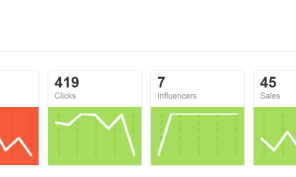 One of the biggest mistakes you can do is use terminology that goes over the heads of your prospective clients. Time and time again I am asked to review a website and I end up reading copy that makes me feel stupider than I felt before I visited the site. What the heck are you really selling? How will it benefit me? Why should I buy it?
One of the biggest mistakes you can do is use terminology that goes over the heads of your prospective clients. Time and time again I am asked to review a website and I end up reading copy that makes me feel stupider than I felt before I visited the site. What the heck are you really selling? How will it benefit me? Why should I buy it?
What is the goal of your website? If it’s informational, give me the right information. If you fail to do so, I cannot learn from you. I will go somewhere else. Thank you for your time.
I have checked out numerous sites of people who are not actively seeking to change their web presence at all. In good intent, I have given the solid advice that it would be in these people’s best interest to have a website that people can understand. With this, there’s greater likelihood for conversion. Understandable content, or good copy, is critical. Further, if you’re exactly what your searcher is looking for, the right copy will rank you higher. If this is a long tail search, so be it. Even better. Without any copy, you might as well not have a web presence at all.
Getting the right copy is still something that people are continually grappling with. Business people who are immersed in the jargon of their regular routine forget that they have moved up the ranks in vocabulary about the particular item they are seeking to sell. To keep the attention of their audience, these businesspeople need to speak to them in a language that they understand, beginning with a simple explanation, and if need be, expounding upon the process in more complex terms once they have understood the fundamentals.
I began my career as a system administrator. I am still a newcomer to the marketing arena. I spend a chunk of my day reading through lines of logs and code, stuff that goes way above the heads of the people I work with. I could start talking to a system administrator on the phone and begin rambling (like I do on my system administration blog; yes, that is yet another product of mine). To the other system administrator, what I’ve said makes perfect sense. We can have a long conversation talking about error messages in /var/log/secure and how to change an MX record without missing a beat. But if I repeated the conversation to the other 99% of the world, I would end up causing wide-eyed stares and leaving people completely in the dark.
Some of my system administration duties get extended to my interaction with clients. How do I explain the concept of “DNS propagation” to someone when we’re about to point their website to a brand new server? (If I lost you already, this is exactly my point!) I have had to liken these examples to real-world understandable examples (“DNS propagation is like a change of address; not every computer finds out about it immediately and so your new website take a little longer to access than you’d expect.”)
In the end, it comes down to being able to effectively communicate the goals of your product or of your service. Seth Godin recently shared a major marketing mishap with his readers. If you’re going to sell your vacuum cleaner, make sure you realize that the people who are looking to buy it want to make sure it addresses their needs. Therefore, your goals as a marketer are to anticipate their questions and have a well-written solution to answer those questions. Would you use the slogan, “The Bissell Healthy Home Vacuum is built like no other vacuum,” as your elevator pitch? I don’t think so. (I don’t care about other vacuums. I want to know why your vacuum cleaner is a worthwhile investment.)
Brian Clark elaborates on how you can ostracize your blog readers if you don’t include them in your conversation. It’s not just about blogs, though. It could be applied anywhere, especially to a general web presence. You might take pride in what you’ve written about your company — it’s the most complex description yet (!) — but it may tell your reader who is specifically looking to learn more to move along, because there’s nothing in it for them here.
That’s the other mistake I see web developers making. “Our business,” they say, “is not about finding leads through the Internet.” Then why have a web presence to begin with? Is it just because it’s the cool thing to do?
Consider writing for your readers to educate them about your industry. Consider good copy to open the lines of communication where people with similar interests find you for a networking opportunity. Consider writing for your audience because well-written copy establishes you as a topical expert, especially if it can easily bring your readers to a greater level of understanding. If your website or your copy achieves bringing your reader from point A to point B while leaving your name fresh in their minds (if short of a conversion), you come out a winner.





Comments are closed.